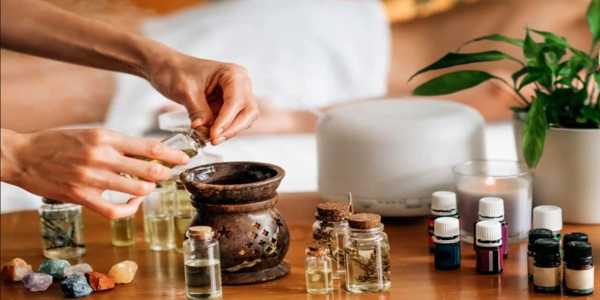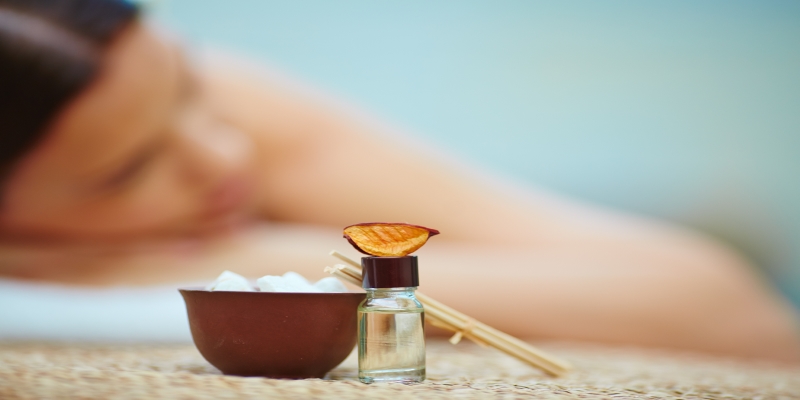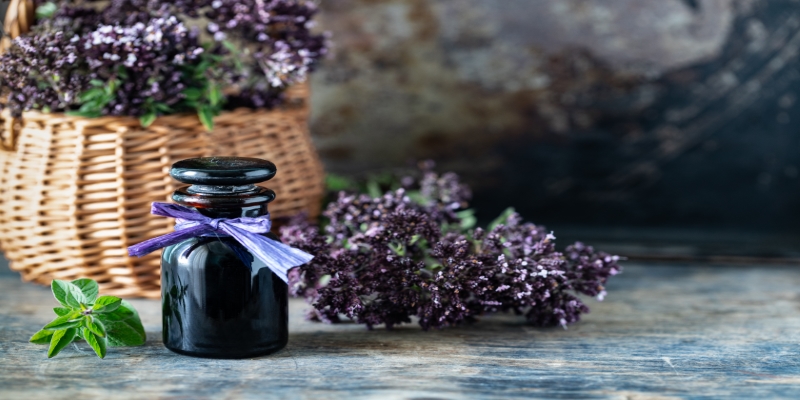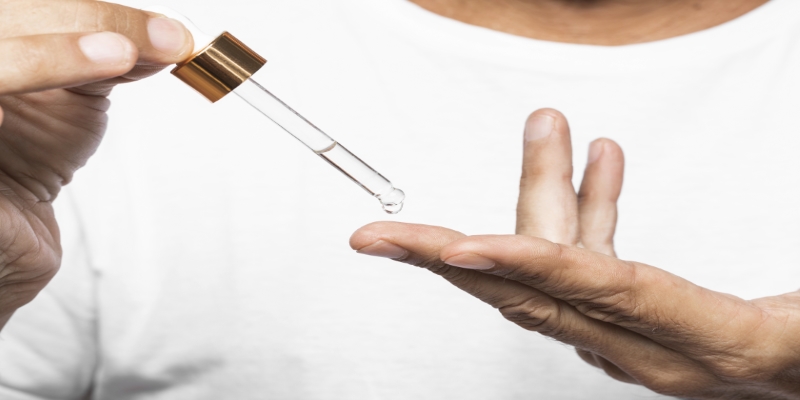
How Aromatherapy Supports Emotional And Spiritual Healing
 Mental Health & Spiritual Healing
Mental Health & Spiritual Healing Aromatherapy, the practice of using plant-derived essential oils to promote physical, emotional, and spiritual well-being, has gained significant attention in recent years.
Aromatherapy, the practice of using plant-derived essential oils to promote physical, emotional, and spiritual well-being, has gained significant attention in recent years. Its roots can be traced back to ancient civilizations, but it remains relevant today as people search for natural ways to enhance their mental health and spiritual wellness. In 2024, aromatherapy continues to be embraced by those seeking balance in an increasingly hectic world. This article delves into how aromatherapy supports emotional and spiritual healing, looking at the science behind it, the role of essential oils, and their impact on mental health and spiritual well-being.
The Science Behind Aromatherapy And Emotional Healing
Aromatherapy relies on the idea that scents can trigger emotional responses in the brain. The olfactory system, which is responsible for the sense of smell, is directly connected to the limbic system—the area of the brain that governs emotions, memory, and behavior. This deep connection explains why certain scents can bring up memories or emotions, sometimes even helping people recall long-forgotten moments of happiness, sadness, or comfort.

Research has shown that specific essential oils can influence the release of neurotransmitters like serotonin and dopamine, which play a key role in mood regulation. For instance, lavender oil is widely known for its calming effects, while citrus oils like lemon and orange are linked to uplifting and energizing feelings. The effects of aromatherapy are not just subjective—they can be measured through changes in brain wave activity, heart rate, and blood pressure, providing objective evidence of its impact on emotional states.
When used in a controlled and mindful manner, aromatherapy can alleviate feelings of anxiety, stress, and depression. For example, studies in 2024 have reinforced lavender oil’s potential as a natural remedy for anxiety, showing that its calming properties can help reduce the physical symptoms of stress, such as rapid heart rate and shallow breathing. Similarly, essential oils like frankincense and chamomile are often employed to help ease emotional tension and foster a sense of tranquility.
Essential Oils For Emotional Balance
Different essential oils have been associated with various emotional benefits. Here are a few that stand out in the context of emotional healing:
Lavender: Known for its relaxing and soothing qualities, lavender is often used to help with insomnia, anxiety, and stress. It's a go-to oil for those looking to create a calm environment and reduce mental fatigue.

Frankincense: Often considered a spiritual oil, frankincense has a grounding effect, making it beneficial for individuals dealing with emotional instability or a sense of disconnection. It can help promote relaxation and deepen meditation practices, fostering a peaceful mental state.
Rose: Rose oil is highly regarded for its heart-healing qualities. It is believed to aid in emotional trauma recovery, especially for those experiencing grief or heartbreak. The comforting aroma of roses can evoke feelings of self-love, compassion, and forgiveness.

Bergamot: This citrus-based oil is known for its mood-boosting effects. It can help alleviate feelings of sadness or despair and is frequently used to combat symptoms of depression. The light, fresh scent of bergamot has an uplifting and energizing impact.
Ylang-Ylang: Often used to balance emotional extremes, ylang-ylang oil is said to support mental clarity and emotional stability. It is commonly used in times of emotional turmoil or when someone feels overwhelmed.
Each of these oils works differently based on the emotional needs of the person. While lavender may calm someone who feels anxious, bergamot may energize someone who is feeling mentally drained. The key lies in understanding how different oils affect emotional states and using them intentionally to support healing.
The Role Of Aromatherapy In Spiritual Healing
In addition to emotional healing, aromatherapy plays a significant role in spiritual wellness. Spiritual healing is often about reconnecting with oneself, finding inner peace, and aligning with a higher sense of purpose. Essential oils can assist in this process by creating an atmosphere conducive to spiritual growth and reflection. Certain scents are believed to have metaphysical properties that can help people feel more centered, grounded, and connected to their spiritual beliefs.
Frankincense, for example, has been used in spiritual practices for centuries, especially in religious ceremonies. It is often burned as incense to purify spaces and enhance meditation. The deep, woody aroma of frankincense is said to encourage clarity and focus, making it easier for individuals to connect with their higher selves or divine entities during prayer or meditation.
Similarly, sandalwood is another essential oil commonly used in spiritual healing practices. It is known for its grounding properties, helping individuals remain present and centered. Sandalwood can be especially useful during meditation, as its soothing aroma helps quiet the mind and deepen spiritual practices.
Essential oils can also assist in balancing the chakra system, an important aspect of spiritual health in certain traditions. For example, oils like lavender and rose are often used to promote the heart chakra, fostering a sense of love and compassion. In contrast, cedarwood and vetiver are used to stabilize the root chakra, helping individuals feel grounded and secure in their physical bodies.
In spiritual practices, aromatherapy is often combined with other techniques, such as meditation, yoga, or energy healing. These combined methods work to create a holistic experience that addresses both the mind and spirit. Aromatherapy enhances these practices by amplifying the effects of deep breathing, mindfulness, and relaxation, allowing individuals to reach a state of inner peace and spiritual clarity.
Practical Application Of Aromatherapy For Emotional And Spiritual Healing
There are various ways to incorporate aromatherapy into your daily routine for emotional and spiritual healing. Here are a few practical methods:
Diffusion: Using an essential oil diffuser is one of the easiest ways to introduce aromatherapy into your environment. Simply add a few drops of your preferred essential oil to the diffuser and let the scent fill the room. This can be done throughout the day to help maintain emotional balance or at night to promote relaxation before sleep.
Topical Application: Essential oils can be diluted with a carrier oil and applied directly to the skin. Common areas to apply oils include the temples, wrists, and the back of the neck. This method is particularly effective for oils like lavender and chamomile, which are known for their calming properties. Be sure to dilute oils properly to avoid skin irritation.

Bathing: Adding essential oils to a warm bath is a wonderful way to experience their therapeutic effects. Oils like eucalyptus and rosemary can help alleviate physical tension, while rose and geranium are ideal for emotional healing. The soothing effects of warm water combined with aromatherapy can create a deeply relaxing experience.
Meditation and Yoga: Incorporating essential oils into meditation or yoga practice can help enhance the spiritual aspect of these activities. Applying calming oils to the palms or using a diffuser during your practice can help create a peaceful, mindful atmosphere that supports deeper spiritual connection and personal growth.
Massage: Aromatherapy massage, which combines essential oils with physical touch, is another effective way to release emotional tension and promote healing. The soothing scent of essential oils, paired with the benefits of massage, can enhance feelings of relaxation and emotional release.

Emotional And Spiritual Healing In The 2024 Context
As we move further into 2024, the growing interest in natural therapies and holistic wellness reflects a larger cultural shift toward self-care and emotional well-being. In a world where stress, anxiety, and spiritual disconnection are common, aromatherapy offers a gentle and effective way to support mental and emotional health. The availability of essential oils and the ease of incorporating them into daily routines make aromatherapy a practical and accessible tool for those seeking emotional and spiritual balance.
However, it is important to note that while aromatherapy can be incredibly helpful, it should not be viewed as a replacement for professional medical or psychological treatment. For individuals dealing with severe emotional or mental health issues, it’s always best to seek advice from a healthcare professional. Aromatherapy should be seen as a complementary practice that can enhance well-being and provide additional support during emotional healing journeys.
Conclusion
Aromatherapy offers a natural, accessible way to support emotional and spiritual healing in our busy, modern lives. Whether through reducing stress, promoting relaxation, or enhancing spiritual practices, the use of essential oils can have a profound impact on mental and emotional well-being. With its ability to tap into the brain’s emotional centers, aromatherapy provides a gentle and effective means of healing that can help individuals find balance, peace, and a deeper connection to themselves and their spirituality. As we move into 2024, the continued interest in aromatherapy highlights the desire for natural and holistic solutions to the challenges of modern living.
